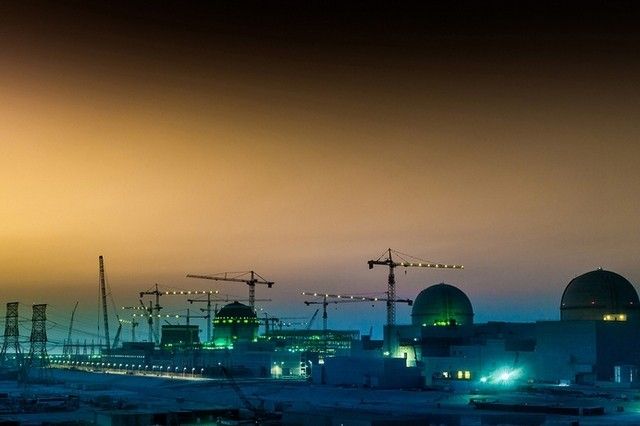Nuclear Power ‘Vital’ to Meet Middle East’s Water Demand
Published on by Water Network Research, Official research team of The Water Network in Technology
Spending billions on desalinating seawater for human use could be consigned to history with the introduction of nuclear power in countries, including the UAE, an atomic energy summit was told.

The UAE’s first nuclear power station being built at Barakah offers a relatively cheap process of desalination. Wam
With more than half of the world’s population expected to live in water-stressed areas by 2030, up from 36 per cent in 2015, experts said nuclear energy would play a vital role in helping to bridge that gap in the Middle East.
"The future is not very bright," said Denis Borisov, projects manager at Roland Berger, the global strategy consultancy, speaking at AtomExpo in Moscow.
"There are many factors for the increase in water demand in the future, namely the growth of population, urbanisation and a change in the patterns of consumption.
"But this growth cannot happen without an increase in energy consumption."
Last year, a study suggested that natural water reserves in Abu Dhabi would be exhausted within 50 years.
The UAE already desalinates huge volumes of water, with 96 per cent of its domestic consumption provided by the 70 desalination plants in the country.
On Tuesday, the summit focused on nations that are developing civilian nuclear plans, such as the UAE’s Barakah nuclear power station that is due to be in full operational in 2020.
"Seawater desalination is the lifeline for some regions, including the Gulf," said Hamad Alkaabi, UAE Ambassador to the International Atomic Energy Agency.
"Nuclear is a proven technology that provides more than 16 per cent of the world’s electricity in more than 30 countries. The option of combining nuclear power with seawater desalination has been proven and has the potential for wider commercial use in the near future.
"As we move into the commissioning phase of the nuclear programme, it is only logical that we investigate the potential for nuclear desalination in the future – a technology that could provide large-scale and sustainable solutions."
The sheer amount of energy required to create clean water has an effect on the environment.
And with gas and oil being the primary sources of energy, the UAE’s desalination plants are one of the leading contributors to greenhouse gases, with regional consumption expected to increase from 42 cubic kilometres per year in 2012 to 200 cubic kilometres by 2050.
"Considering climate change and economic growth, nuclear power generation is the most environmentally friendly and safe because it does not have CO2 emissions nor exhaust gases," he said. "Technologies will be the differentiating factor," Mr Borisov said.
More than of half of the world’s desalination plants are found in the Middle East, followed by 17 per cent in North America.
Read more: The National
Media
Taxonomy
- Energy
- Energy Efficiency
- Desalination
- Energy Efficiency
- Sea Water Desalinisation
- Desalination Plant
- Nuclear Energy
- Nuclear Plant Operation